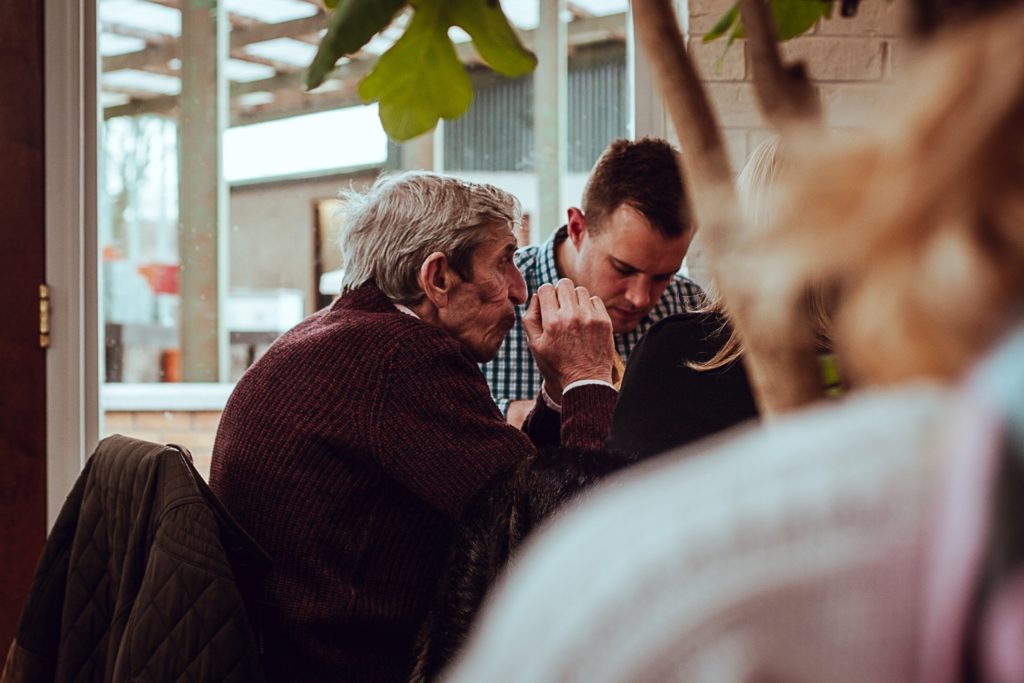Holidays can be a very difficult time for many people. Hopes and unmet desires seem to come up in ways well beyond the normal expectations we may have during the rest of the year. See here for our thoughts on understanding ways in which we may contribute to some of the issues.
What to Do?
In the long run, of course, therapy is designed to address these exact types of issues.
In the short-term
Here are some tips to lessen the problems. These will
not ‘cure’ the situation, but just like taking aspirin, the pain may lessen enough to make the situation better.
Lessening Expectations During the Holidays
What we mean by this is to try to consciously look at what you hope for from the events during the holidays. Are you being honest with yourself that you hope things go OK, o
r are you secretly hoping for the perfect situation? If th
e truth is the latter, you can plan on being disappointed. It’s important to be honest with yourself in this exercise. Has anything changed that would lead you to think the major players have undergone some significant change? If not, why would you expect anything other than what usually happens during the holidays?
Explore What it is You Really Want f
rom the Experience
We all have unconscious desires and dreams. By definition, they are outside of our conscious awareness, therefore this exercise will not fully be successful by oneself (or even in therapy) Nonetheless, really try to be brutally honest with yourself. Is this really just about having a ‘nice holiday’ or is there a chance that you are looking to have major ‘wrongs’ in the past made right? If it is the latter, you are setting yourself up for unhappiness. If things have not changed before this, they will not likely spontaneous change now. (See above about limiting expectations).
The Fast Food Metaphor
This is a concept I have used for many years. Many people w
ant things on their terms, and they are upset when that is not what happens. It is as if you are at a fast food cou
nter and you are looking for duck. The problem is that fast food restaurants do not serve duck. You can wait at the counter until they decide to create a duck burger or duck-nuggets, OR you can decide to have something the restaurant actually has to offer. Perhaps it is not the best bur

ger in the world, but if that’s what is available and you can come to terms with that – then it can be satisfying in its own way.
Similarly, many people want things from their family members which are not on the menu. We can sit there resentfully growing impatient that they are not giving us what we want. Or, we can decide to learn to accept the limitations of what that other person (people) have to offer. Within those limitations, there can often be some satisfying (if not perfect) experiences.
Limit Alcohol or Other Drug Consumption
Sure it might seem like a glass of wine will help make the event more tolerable. But the problem CAN be that a second or third glass may begin to make sense. Eventually, the disinhibiting effects of alcohol, along with the stirred up feelings can become a slippery slope to a much worse experience.
The Children’s Birthday Party Model
Over the past few decades, many parents have moved from an all-day birthday party to the model of a two-hour, time-limited event. This might have started from paid venues offering limited times, but many parents have adopted this as a model in general. The main benefit is that many young children can manage (or perhaps be managed) for a couple of hours. After that, things can get a little wilder.
Perhaps an element of this can be useful. Not only limiting expectations and alcohol, but also by limiting the actual amount of time it may be that one limits the op
portunities for people’s behavior to become more difficult.
Politely Assert One’s Limits
If you know your family will go off the rails when some conversational topic comes up, either politely change the subject or even state that you will not talk about this topic. It might be unusual or seem out of place to make this assertion, however, if it limits the amount of problems you have to encounter it may well be worth the try.
As part of this limitation, and perhaps mixed in with limiting expectations, do not try to convince anyone in the family of something. While standing up for one’s beliefs is important, there are also the issues of time and place. Have you ever heard of someone ‘seeing the light’ and changing political beliefs, sexual attitudes or convictions about any manner of personal beliefs and values because of a conversation at a holiday meal? On the other hand, have you ever heard of things erupting because of such a conversation? Point made.
If things go better for a longer time, not for the entire time but
perhaps for a longer time – that is a victory! This might well happen. The issue is if you are looking for perfection, you may well miss the fact that things went better for some period or even a longer period of time. Letting go of absolutes can really help in this mindful approach.



